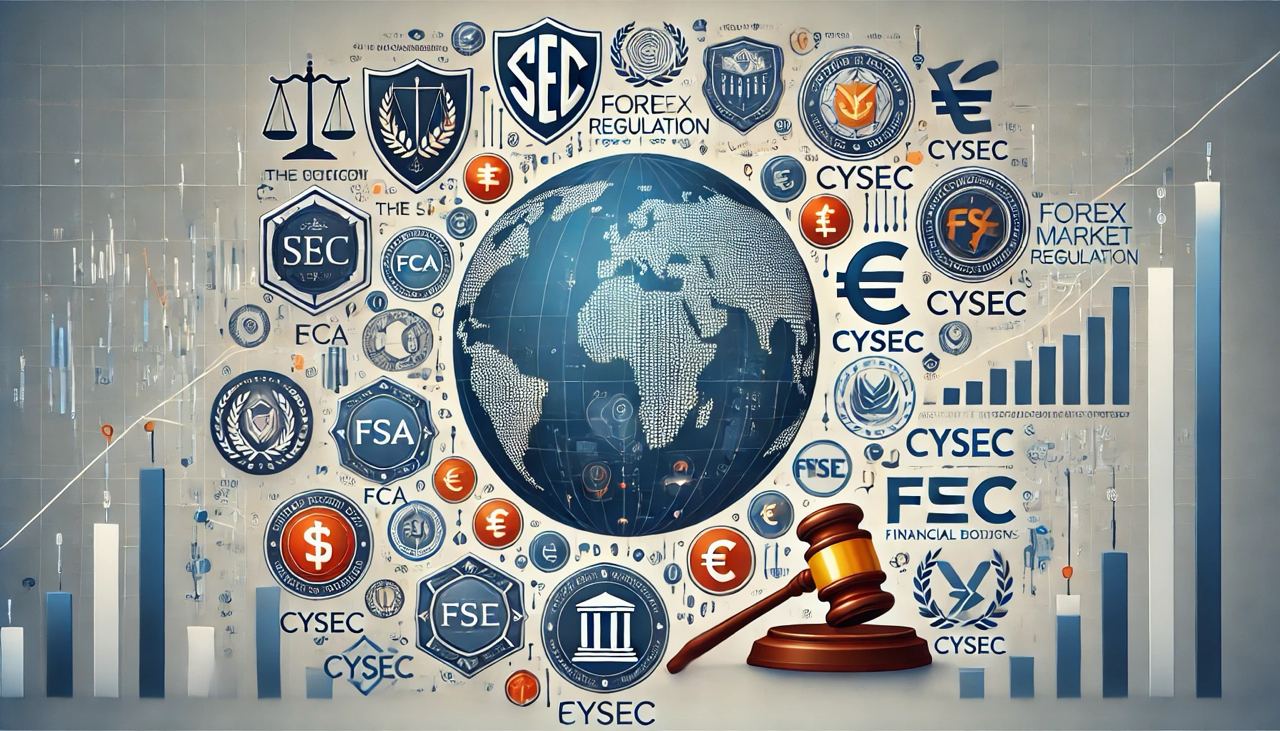Learn Trading for Free and Without Registration
An Online Glossary to Study Trading Independently
Licensed Brokers
Licensed Forex Brokers: How to Choose a Reliable One and Avoid Traps
Choosing a forex broker is one of the most challenging tasks for traders, especially beginners. Aggressive marketing allows even fraudulent companies to gather positive reviews, while well-established brokers may face criticism. Finding the truth isn’t easy since arguments from both sides often sound convincing. When analyzing reviews, beginners should focus on evidence-backed claims instead of vague statements.
Regulation: The Main Criterion of Reliability
All financial activities must be regulated. In Russia, after 15 years of forex market development, the Central Bank finally brought order to the industry in 2019. It required forex dealers to obtain special licenses to operate in the country, imposing strict requirements. Only major players managed to meet these standards.
The market situation changed as follows:
- Offshore brokers continued to operate under foreign jurisdictions, managing clients’ funds globally in countries like Panama.
- Licensed brokers began operating strictly within Russian laws but with a limited range of services.
Why Are Licensed Brokers Less Popular?
Despite their legitimacy, Russian-licensed brokers haven’t gained widespread popularity. Here are the main reasons:
- Limited trading instruments. Licensed brokers offer access to a narrow selection of currency pairs and Moscow Exchange instruments. Popular assets like cryptocurrencies and diverse CFDs are often unavailable.
- Reduced leverage. While offshore brokers offer leverage up to 1:1000, licensed brokers cap it at 1:30, making it difficult to trade flexibly or pursue high-risk strategies like scalping.
- High stop-out levels. Licensed brokers often impose higher margin requirements, leading to premature deal closures.
- Tax implications. Offshore brokers allow traders to manage taxes independently, avoiding bureaucracy. Licensed brokers require full tax compliance, adding complexity to trading.
List of Licensed Forex Brokers in Russia (2019)
The following brokers obtained licenses from the Central Bank of Russia:
- Finam. A veteran of the Russian market with a solid reputation.
- VTB24 Forex. A division of the state-owned VTB Bank offering currency trading.
- Alfa Forex. A commercial bank-affiliated broker with a user-friendly platform.
- PSB Forex. A licensed branch of Promsvyazbank.
- BCS Forex. A well-known player in Russia’s financial markets, expected to join the licensed list.
Major brands like Alpari, Forex Club, and InstaForex are notably absent, as their licenses were revoked in 2019.
Types of Brokers: A-book vs. B-book
Forex brokers fall into two main categories:
- A-book brokers. They route clients’ trades directly to the interbank market and earn through commissions or spreads. These brokers are interested in clients’ success, as their profits are not tied to traders’ losses.
- B-book brokers. They do not route trades to the real market, instead acting as counterparties to their clients. These brokers profit from clients’ losses. Over 99% of brokers operate under this model, making them highly unreliable.
Working with B-book brokers is risky since their primary goal is for traders to lose money. Be especially cautious of brokers claiming to be regulated but failing to appear in any official regulator’s records—this is a clear sign of fraud.
Fraudulent Practices: Red Flags
- "Analysts" offering investment advice. If someone contacts you with "profitable" deals while your account balance is as low as $200, it’s almost always a scam. Reliable brokers don’t use such tactics.
- Unrealistic promises. Guarantees of high returns or "expert assistance" often conceal fraudulent schemes.
- Unverified licenses. Always check if the broker’s claimed license is valid and listed with the regulator. If not, avoid them entirely.
Choosing a Broker Based on Country of Residence
Your choice of broker should depend on your country of residence:
- For residents of the EU, USA, and Israel, brokers must comply with strict local regulations from entities like ESMA, SEC, or ISA. These companies provide transparent conditions but may limit leverage and instruments.
- For traders in CIS countries, offshore brokers with more flexible conditions are often available, but they come with higher risks.
Conclusion
Selecting a forex broker is a critical step that requires careful research. A reliable broker should hold a license from a recognized regulator, offer transparent trading conditions, and have a proven reputation. Avoid B-book brokers and don’t trust promises of guaranteed profits or unsolicited advice.
Remember: your safety depends on your choice. Trade only with trusted brokers and stay alert to suspicious offers.


